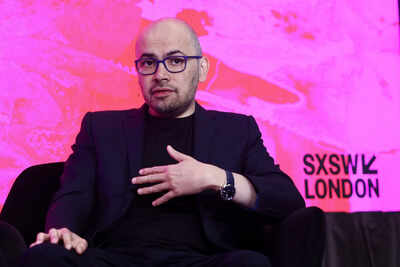Demis Hassabis educational qualification: How a child chess prodigy became the brain behind Google DeepMind

Demis Hassabis, CEO of Google DeepMind and recipient of the 2024 Nobel Prize in Chemistry, has followed an extraordinary path marked by academic brilliance, scientific curiosity, and technological innovation. From mastering chess at the age of four to leading one of the world’s most influential AI research companies, Hassabis’s journey is deeply rooted in a lifelong dedication to learning—especially in the fields of science and technology.Speaking at SXSW London, Hassabis emphasized the continuing importance of a strong academic foundation. Despite the transformative potential of artificial intelligence, he believes that the key to thriving in the AI era still lies in mastering core disciplines such as mathematics, physics, and computer science. “It’s still important to understand fundamentals,” he said, urging students to combine traditional STEM education with hands-on experience in AI tools to stay relevant and competitive.From early education to Cambridge excellenceBorn on July 27, 1976, in the United Kingdom, Demis Hassabis was raised in North London by a Greek Cypriot father and a Singaporean mother. He showed exceptional talent from an early age, becoming a chess prodigy by four and reaching master standard by thirteen, with an Elo rating of 2300. As a teenager, he captained England’s junior chess teams and later represented Cambridge in the Oxford–Cambridge varsity matches.After attending Queen Elizabeth’s School in Barnet and spending time being home-schooled, Hassabis completed his A-levels at just 16. During this period, he used his chess tournament winnings to buy a ZX Spectrum 48K computer and taught himself programming. He later attended Christ’s College, Finchley, before entering Queens’ College, Cambridge, where he graduated in 1997 with a double first-class honours degree in computer science.Shifting from game design to brain scienceAfter university, Hassabis joined the video game industry, working at Bullfrog Productions and Lionhead Studios. At just 17, he co-designed and lead-programmed Theme Park, a globally successful simulation game. He later founded Elixir Studios, producing games such as Republic: The Revolution and Evil Genius, which featured advanced AI mechanics.Driven by a deeper interest in how the human mind works, Hassabis returned to academia and earned a PhD in cognitive neuroscience from University College London in 2009, under the supervision of Professor Eleanor Maguire. His groundbreaking research revealed how damage to the hippocampus affects both memory and imagination, and his work was widely published in journals including Nature, Science, and PNAS. He later conducted research at MIT and Harvard before receiving a Henry Wellcome Fellowship at UCL’s Gatsby Computational Neuroscience Unit.Building DeepMind and reshaping AIIn 2010, Hassabis co-founded DeepMind with Shane Legg and Mustafa Suleyman, aiming to “solve intelligence” and use it to address global challenges. The company quickly gained attention for its achievements in AI, including teaching neural networks to play Atari games and building AlphaGo, the first program to defeat a world champion in Go.DeepMind’s most celebrated breakthrough came with AlphaFold2, which solved the decades-old challenge of protein structure prediction and led to Hassabis receiving the Nobel Prize. Today, as AI reshapes industries, Hassabis remains both a leading innovator and a passionate advocate for scientific education as the key to unlocking humanity’s future.





